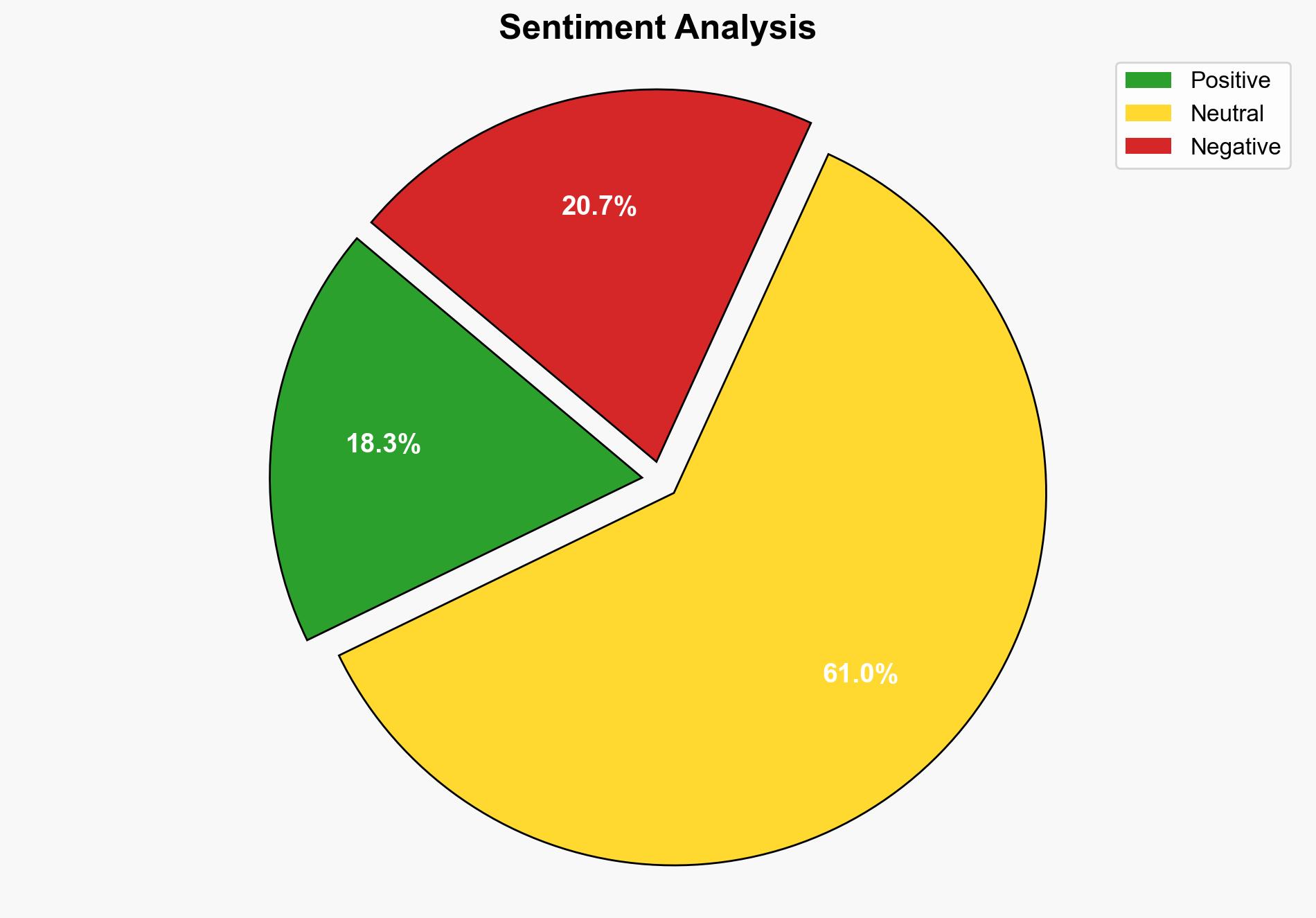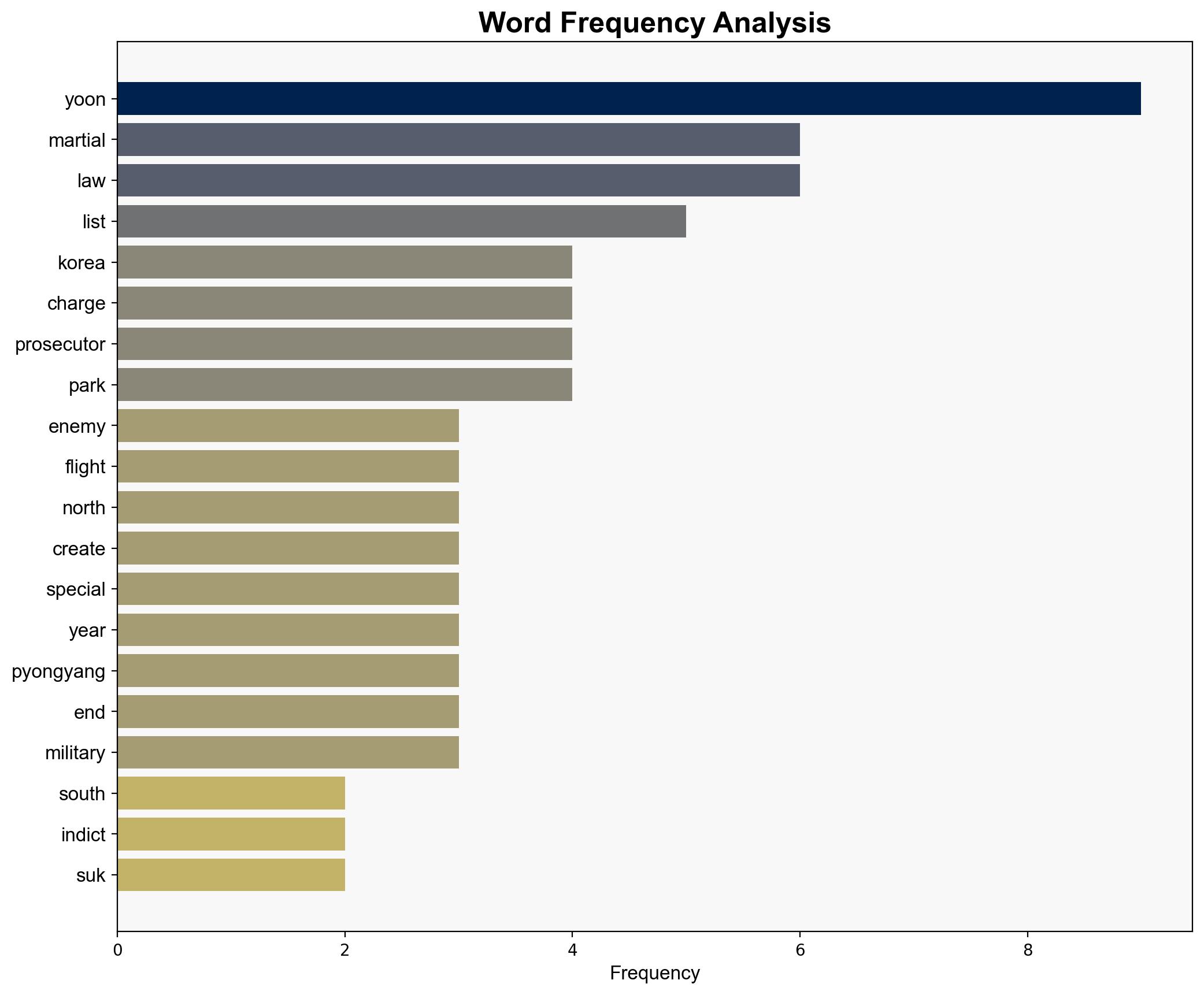South Korea indicts ex-leader Yoon on charges of aiding the enemy – Al Jazeera English
Published on: 2025-11-10
Intelligence Report: South Korea indicts ex-leader Yoon on charges of aiding the enemy – Al Jazeera English
1. BLUF (Bottom Line Up Front)
The most supported hypothesis is that Yoon Suk-yeol’s actions were primarily intended to consolidate power through martial law, rather than directly aiding North Korea. This conclusion is based on the structured analysis of the available evidence, which suggests a domestic political motive. Confidence level: Moderate. Recommended action: Monitor political stability in South Korea and potential impacts on regional security dynamics.
2. Competing Hypotheses
1. **Hypothesis A**: Yoon Suk-yeol orchestrated the drone flights and martial law declaration to create a pretext for consolidating power domestically, without the primary intent of aiding North Korea.
2. **Hypothesis B**: Yoon Suk-yeol’s actions were primarily aimed at aiding North Korea, with the martial law declaration serving as a secondary objective.
Using the Analysis of Competing Hypotheses (ACH) 2.0, Hypothesis A is better supported by the evidence, particularly the memo indicating a focus on creating an unstable situation for domestic power consolidation. Hypothesis B lacks direct evidence of intent to aid North Korea.
3. Key Assumptions and Red Flags
– **Assumptions**: It is assumed that the memo accurately reflects Yoon’s intentions and that the prosecutor’s allegations are based on credible evidence.
– **Red Flags**: The lack of direct evidence linking Yoon’s actions to aiding North Korea raises questions about the completeness of the intelligence. Potential bias in the prosecution’s narrative should be considered.
– **Blind Spots**: The broader geopolitical context and any external influences on Yoon’s decision-making are not fully explored.
4. Implications and Strategic Risks
– **Political Instability**: The indictment could lead to increased political polarization in South Korea, impacting governance and policy continuity.
– **Regional Security**: Heightened tensions between South and North Korea could escalate, affecting regional security dynamics.
– **Economic Impact**: Political instability may deter foreign investment and impact economic growth in South Korea.
– **Cybersecurity Risks**: Potential for increased cyber activities from North Korea in response to the indictment.
5. Recommendations and Outlook
- Monitor political developments in South Korea to assess potential impacts on regional stability.
- Enhance intelligence collection on North Korean responses to gauge potential escalation risks.
- Scenario Projections:
- **Best Case**: Political stability is maintained, and regional tensions de-escalate.
- **Worst Case**: Political turmoil leads to a security crisis, with increased military posturing by North Korea.
- **Most Likely**: Political tensions persist, but without significant escalation in regional conflict.
6. Key Individuals and Entities
– Yoon Suk-yeol
– Park Ji-young
7. Thematic Tags
national security threats, political instability, regional focus





